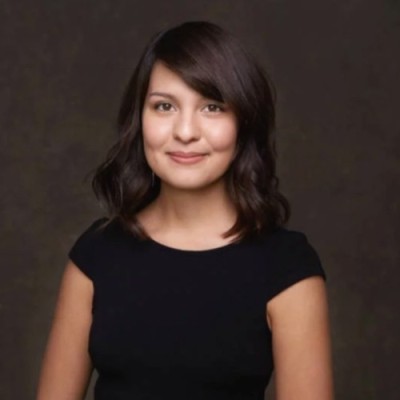By Amelia Atencio
For those reading this blog, I have the distinct pleasure of being the first of many guest authors to share my story.
The first piece of financial advice I received was a snippet I overheard from a YouTube video, “Aim to save a year’s worth of your salary at any given point in your life. This way, if anything were to happen, you could secure your livelihood while you re-gain your footing.”
For those I haven’t had the pleasure of meeting yet, I am Amelia Atencio, a 2014 Scholar and ’18 Colorado College Alumna. Growing up, money was tight in my household and I was always aware of the cost of living. Years like 2008 were challenging and others like 2014 were filled with promise.
If, like me, you’re shifting in your seat because this is a slightly uncomfortable topic, that’s because talking about money is taboo. Korrena Bailie, a consumer finance editor at Forbes Advisor says, “Not talking about money can have sweeping social effects, like stopping women from getting equal pay for equal work in the workplace.”
March is Women’s History Month – a time to celebrate the achievements of woman across the world and a time to have conversations that carry the torch forward for equal rights, equal pay, and equal representation.
I should share that I do not work in finance, I am just a young woman who wants to be able to better manage my money and be financially secure. I want the same for all women. So, how do we help women better manage their money? First, we can begin by being candid and not being embarrassed by financial conversations.
Secondly, we can share resources, tips, and empower women to be champions of their own financial security.
Most importantly of all, we can make banking and investing more accessible to women.
I recently attended an event with History of Colorado to learn more about The Women’s Bank. One of Colorado’s and Boettcher’s own champions, Judi Wagner helped found the Women’s Bank in Denver, CO. in 1978. At the time, banks were not favorable to women and until 1974 women still needed a male co-signer to open a bank account or line of credit. This law prevented many female settlers and widowed businesswomen from using a bank to manage their assets.
Unlike other female-chartered banks in the U.S., this bank was intended for women. On opening day, they took in over $1 million dollars from women in the community. The success of the bank was so profitable that the annual return averaged ~14%. This success continued for 16 years until 1994 when the bank was acquired by the Colorado Business Bank.
During the virtual event, I had the pleasure of asking Judi Wagner, “What advice would you share with women managing their money?” and she said, “To invest.” Not only should women learn to invest, but they should also create portfolios that will allow them to “sleep well at night” and are resilient to market bubbles. A great place to start is ElleVest, but she also stressed the importance of interviewing several brokers to ensure you trust the person managing your investments.
I also asked Judi if she thought banking was more welcoming today. She said, “Yes, of course. There are many women in banking and investment roles today.” She also pointed to Jane Fraser saying, “We have come a long way, but there is still much work to be done.” Jane Fraser is a poignant example because she was appointed the CEO of Citigroup this past year — the first female CEO of a large financial institution. While her accomplishment marks an incredible achievement for women, it is also a reminder that appointing women in high-ranking positions is long overdue.
Though March is coming to a close, it is important that the work continues. How can you empower the women in your life to play an active role in their finances? Perhaps you can start having conversations with your children at a young age or help them set up their first bank account. Or, if you are well versed in financial planning or investing, you can share your resources with women you mentor at work. At the end of the day, what matters most is dismantling the stigma around money and we can all do that by having candid conversations. Money doesn’t have to be so mysterious.




